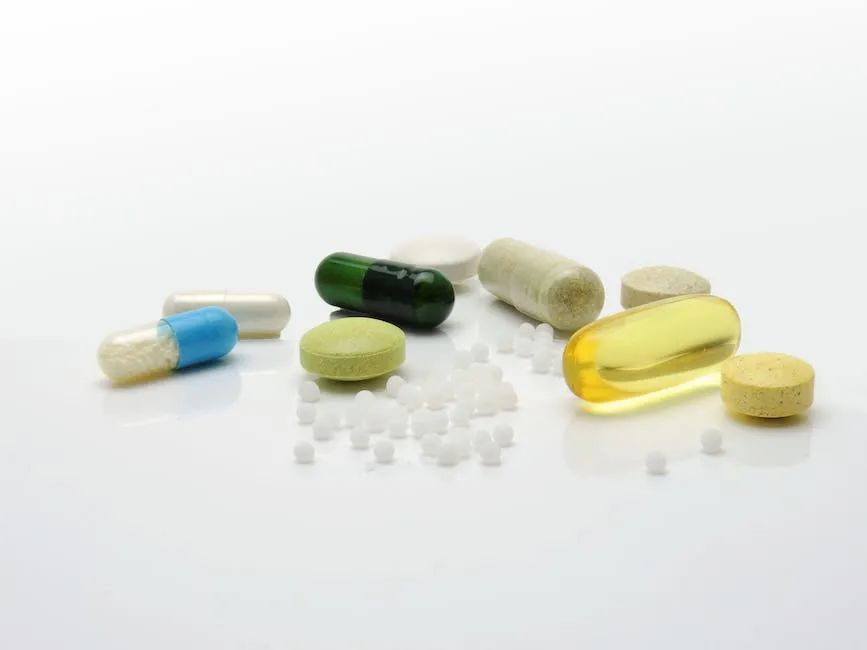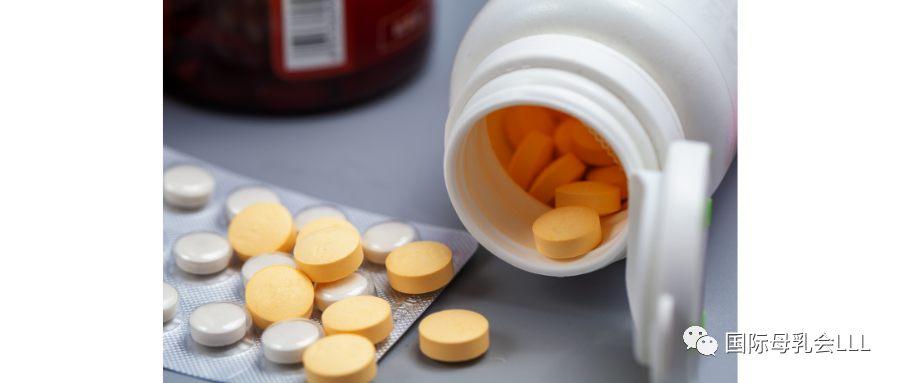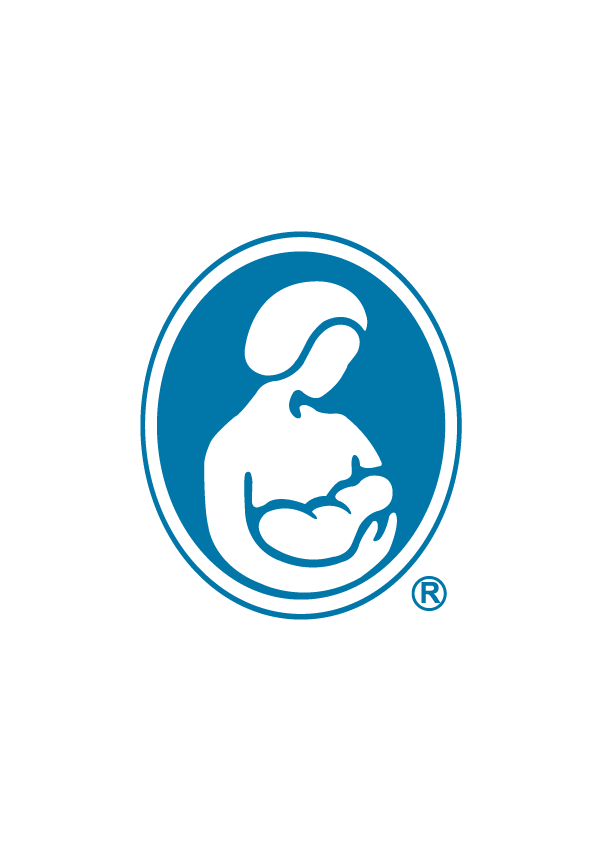点击上方 国际母乳会LLL 设为星标 ,获取哺乳信息

图|国际母乳会中国图片库
▼
“我刚刚做了个手术。我可以服用这种止痛药吗?”
“我得了流感,我能吃什么药?”
“这种感冒药会让我的乳汁变少吗?”

常见问题


我可以在哺乳期服用药物吗?

可以。
绝大多数处方药和非处方药都与母乳喂养相容,或者可以找到与母乳喂养相容的替代药物。
根据美国儿科学会(American Academy of Pediatrics)的说法,“母乳喂养时,只有少数药物是禁忌的(不推荐)。尽管许多药物确实会进入乳汁,但大多数药物对乳汁供应或婴儿的健康几乎没有影响。”重要的是要告知您的医疗保健提供者您正在哺乳期。

服药期间我需要“吸奶并丢弃”吗?

很多人经常被告知在哺乳期服药时需要“吸奶”并“丢弃”。
这些建议往往没有证据支持,因此我们需要核对可靠的信息来源,以获取最新的基于研究的信息。
许多医疗保健者依赖于他们所开药物的包装说明书,而包装说明书几乎总是警告“孕期或哺乳期禁用”。然而,通过许多可靠的资源,我们可以找到更准确的答案。
有关您是否需要暂时或永久停止母乳喂养的信息,请咨询当地哺乳辅导或以下资源。

常见问题


国际母乳会的哺乳辅导如何提供帮助?

哺乳辅导是经过培训的志愿者,而不是医疗保健专业人员。
虽然哺乳辅导不被允许告诉您药物是否安全,但他们可以提供药物信息和可能的替代方案,帮助您做出明智的决定。
如果您确实需要暂时停止哺乳或断奶,哺乳辅导也可以帮助您制定一个吸奶方案来维持您的乳汁供应。

药物资源和数据库有哪些?

以下是我们发现的一些有用的资源。许多资源也被医生和药剂师用于帮助患者。
LactMed
LactMed(www.ncbi.nlm.nih.gov/books/NBK501922/)
是由美国国立卫生研究院(NIH)下属的美国国家医学图书馆 (NLM) 维护的网站数据库。其在线数据库和移动应用程序都包含了有关母乳和婴儿血液中的药物含量以及对哺乳婴儿可能产生的不良影响的信息。并在适当的情况下,推荐了替代药物。所有数据均来自科学文献,有完整的参考文献。同行评审小组审查数据的科学有效性并保持及时更新。
InfantRisk
InfantRisk(www.infantrisk.com)
是由注册药剂师Thomas Hale博士及其在德克萨斯理工大学健康科学中心的团队发布和维护的热线电话、网站和移动应用程序。热线电话 – 致电专家询问有关怀孕或哺乳期非处方药 (OTC) 或处方药的问题。周一至周五,上午8点至下午5点(美国东部时间),电话号码:1-806-352-2519。
InfantRisk有2个移动应用程序(www.infantrisk.com/infantrisk-center-resources):MommyMeds是提供给母亲的免费App,InfantRisk提供给医疗保健专业人士。这些应用程序为您提供有关药物以及怀孕和母乳喂养的信息。在某些情况下,这些应用程序还会列出能安全母乳喂养的可能的替代药物。
E-Lactancia
E-Lactancia(https://e-lactancia.org)是一个西班牙语-英语在线数据库,由 APILAM(促进母乳喂养文化和科学研究协会)维护。这个数据库由医生和药剂师共同维护。
译者注:
1)本文介绍的国外资源和数据库,使用的语言都不是中文,如有需要,大家可借助翻译工具来参考阅读。
如果希望寻找中文界面的工具,也可参考适合国内读者的一些资源(如,医学界医生站、用药助手等等)来查询哺乳期药物的安全等级。
2)由于缺乏安全性数据,中药是查不到安全等级的。

关于非处方药 (OTC)
避免服用几乎没有母乳喂养信息的非处方药。药剂师应该能够协助提供更多信息。 避免服用有更安全的替代产品的非处方药。同样,药剂师可以帮助确定这一点。 避免服用含有多种成分的复方非处方药。母亲最好服用含有单一或两种特定成分的非处方药来治疗她的特定病症;没有必要让母亲或哺乳期婴儿接触不必要的成分。 避免服用大剂量的非处方药。如果哺乳期婴儿不需要,没有必要让他接触大剂量的药物。 避免服用长效非处方药。没有必要让哺乳期婴儿长时间接触药物,尤其是在婴儿可能出现不良反应的情况下。”
关于草药或膳食补充剂
59%的样品含有标签上未列出的植物物种 33%的样品含有标签上未列出的污染物或填料 32%的样品含有不同于产品主要标签成分的植物来作为替代,但标示的成分在样品中却未检测到 9%的样品仅含有小麦或大米,而不包含标签上的植物种类。
国际母乳会的提供




Medications and Breastfeeding
“I’ve just had surgery. Can I take this pain medication?”
“I have the flu. What can I take?”
“Will this cold medication make my milk dry up?
We often receive questions about the safety of medications while breastfeeding. Families are concerned not only with how a medication might affect their baby but also how it might affect their milk supply. Fortunately, there is a great deal of information out there about medications and human milk.
Can I take medicines while nursing?
Yes, the vast majority of prescription and over the counter medications are compatible with breastfeeding or have a breastfeeding-compatible alternative.
According to the American Academy of Pediatrics(https://www.cdc.gov/breastfeeding/faq/index.htm#contraindications), Only a few medications are contraindicated (not recommended) while breastfeeding.
Although many medications do pass into breast milk, most have little or no effect on milk supply or on an infants well-being. It is important to share that you are nursing with your healthcare provider.
Do I need to pump and dump while taking medications?
Families are frequently told to pump and dump when taking a medication. These recommendations are often not backed up by evidence, so it is important to check reliable sources for up-to-date research-based information.
Many health care providers rely on the package insert of the medication that they are prescribing. The package insert almost always cautions against prescribing the medication to pregnant or lactating people. However, there are many reliable resources for finding more accurate answers.
For information about whether you will need to temporarily or permanently cease breastfeeding, check with your local Leader(https://lllusa.org/locator/) or the resources below.
How can an LLL Leader help?
Leaders are trained volunteers and not health care professionals. While Leaders are not permitted to tell you if a medication is safe, they are able to provide information about medications and possible alternatives to help you make an informed decision.
Leaders are also able to assist you in creating a pumping regimen to maintain your supply in the event that you do need to temporarily stop nursing or wean.
Medication Resources and Databases
Here are a few resources that we have found helpful. Many are also used by medical doctors and pharmacists for assisting their patients.
LactMed
LactMed(https://www.ncbi.nlm.nih.gov/books/NBK501922/) is a website database maintained by the US National Library of Medicine (NLM) at the National Institutes of Health (NIH). Both the online database and mobile app include information on the levels of substances in breast milk and infant blood and the possible adverse effects in the nursing infant. Suggested therapeutic alternatives to those drugs are provided, where appropriate. All data come from scientific literature, and entries are fully referenced. A peer review panel reviews the data for scientific validity and currency.
InfantRisk
InfantRisk(https://www.infantrisk.com/) is a hotline, website, and mobile app that are published and maintained by Dr. Thomas Hale, a registered pharmacist, and his team at the Texas Tech University Health Sciences Center.
Hotline- Call to ask experts your questions about over the counter (OTC) or prescription medications while pregnant or nursing. Monday Friday, 8am-5pm CT 1-806-352-2519
InfantRisk maintains 2 mobile apps(https://www.infantrisk.com/apps): MommyMeds for Mothers (free) and InfantRisk for Health Care Providers. The apps provide you with information about medications and both pregnancy and breastfeeding. In some cases, the apps also list possible breastfeeding-safe alternative medications.
E-Lactancia
E-Lactancia(http://e-lactancia.org/) is an Spanish-English online database maintained by APILAM, Association for Promotion of and Cultural and Scientific Research into Breastfeeding. It is maintained by both medical doctors and pharmacists.
What about over-the-counter (OTC) medications?
Many parents have questions about taking over-the-counter (OTC) medications especially to treat cold and flu(https://www.infantrisk.com/content/over-counter-treatments-cough-and-cold).
Dr. Frank J. Nice shares(https://www.llli.org/over-the-counter-otc-medications-and-breastfeeding-2/), In many cases, OTC medications consist of multiple ingredients for multiple symptoms.
Many OTC medicines have both regular-strength and extra-strength forms of the same product. The medication may be short-acting or long-acting. In addition, mothers may find it difficult to follow complex package directions.
They may take an inappropriate OTC medication or may have been given incorrect advice by family or friends. Thus, taking an OTC medication may not be as simple as it initially appears. It will probably be even more complex for consumers who are breastfeeding.
• Avoid taking OTC medications for which little breastfeeding information is available. A pharmacist should be able to assist with additional information.
• Avoid taking OTC medications for which safer products are available. Once again, a pharmacist can help determine this.
• Avoid taking combination OTCs, which are those with multiple ingredients. It is better for the mother to take an OTC that has the one or two specific ingredients that will treat her specific condition; there is no need for mothers or nurslings to be exposed to unnecessary ingredients.
• Avoid taking extra strength forms of OTC medications. There is no need for the nursling to be exposed to extra amounts of a drug when it is not needed.
• Avoid taking long-acting OTC medications. There is no need for the nursling to be exposed to a drug for a longer period of time, especially if an adverse reaction is possible in the nursling.
What about herbal medicines or dietary supplements?
Because of the lack of safety data, many experts including those at InfantRisk generally recommend that nursing parents avoid taking dietary supplements and herbal medicines.
In the US, the FDA only regulates the labeling of dietary supplements, not their content or quality.
Most herbals are labeled as dietary supplements, and so have to include the disclaimer that they have not been evaluated by the Food and Drug Administration , and are not intended to diagnose, treat, prevent and/or cure any disease.
The supplement manufacturer does not have to get FDA approval for its products or claims, and it does not have to prove that the product is either effective or safe.
The ingredients in herbal products often do not match what is on the label. In a DNA study of 44 herbal products from 12 different companies(https://bmcmedicine.biomedcentral.com/articles/10.1186/1741-7015-11-222), the researchers found that:
• 59% of the samples contained plant species not listed on the label
• 33% of the samples contained contaminants or fillers not listed on the label
• 32% of the samples contained a different plant in place of the products main labeled ingredient, which was NOT detected within the sample
• 9% of the samples contained only wheat or rice, and not the plant species on the label
For example, one of the products in the study that was labeled St. Johns Wort contained only senna, which is a laxative that should not be taken on a long-term basis. In other products, some of the unlabeled fillers and contaminants were allergens that could cause severe reactions in sensitive people.
If you are looking for information about a specific dietary supplement, some are listed in the medication resources listed above.
If you are looking for information about herbal galactagogues to help increase your milk supply, check out this article .
IS YOUR CONCERN OR QUESTION NOT COVERED HERE?
Please contact a local LLL Leader with your specific questions.
Medical questions and legal questions should be directed to appropriate health care and legal professionals.



参考资源
Resources:
https://lllusa.org/medications-and-breastfeeding/
Breastfeeding and Surgery, LLL USA
Over the Counter Medications and Breastfeeding, Dr. Frank Nice, RPH, DPA, CPHP for LLLI
Medications: A Quick Guide for Parents, LLLI
Clinical Protocol #15: Analgesia and Anesthesia for the Breastfeeding Mother Academy of Breastfeeding Medicine
Cold and Flu Medications While Breastfeeding, InfantRisk
Over-The-Counter Treatments for Cough and Cold, InfantRisk
Prescription Medication Use and Breastfeeding, American Academy of Pediatrics (AAP)
Clinical Protocol #13: Contraception During Breastfeeding Academy of Breastfeeding Medicine
Clinical Protocol #18: Use of Antidepressants in Breastfeeding Mothers Academy of Breastfeeding Medicine
Vitamin D Supplements, InfantRisk
Vitamin D, Your Baby, and You, LLLI
Vitamins and Other Nutritional Supplements, LLLI
The Nursing Mothers Herbal by Sheila Humphrey
Nonprescription Drugs for the Breastfeeding Mother by Frank J. Nice,

END
译者 | Michelle
审阅 | Victoria、笑仪、Lynn、Marien
编辑 | 李热爱


更多阅读资料,
欢迎大家访问“国际母乳会LLL”官网:
https://www.muruhui.org/
分享
收藏
点赞
在看

本篇文章来源于微信公众号: 国际母乳会LLL
